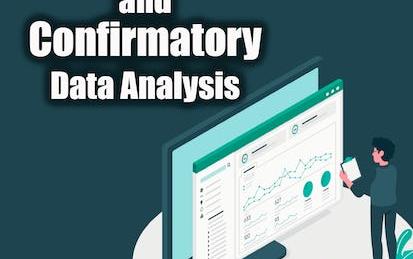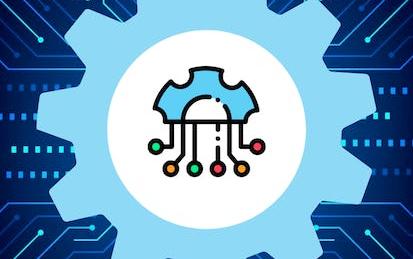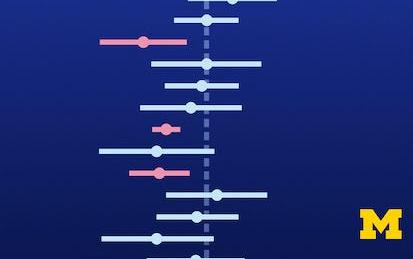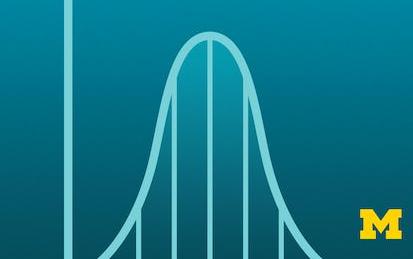

دوراتنا

IBM Data Analytics with Excel and R
Prepare for the in-demand field of data analytics. In this program, you’ll learn high valued skills like Excel, Cognos Analytics, and R programming language to get job-ready in less than 3 months. Data analytics is a strategy-based science where data is analyzed to find trends, answer questions, shape business processes, and aid decision-making. This Professional Certificate focuses on data analysis using Microsoft Excel and R programming language.
-
Course by

-
 Self Paced
Self Paced
-
 الإنجليزية
الإنجليزية

Digital Signal Processing
This Specialization provides a full course in Digital Signal Processing, with a focus on audio processing and data transmission. You will start from the basic concepts of discrete-time signals and proceed to learn how to analyze data via the Fourier transform, how to manipulate data via digital filters and how to convert analog signals into digital format. Finally, you will also discover how to implement real-time DSP algorithms on a general-purpose microcontroller.
-
Course by

-
 Self Paced
Self Paced
-
 الإنجليزية
الإنجليزية

Interactive Geospatial Visualization:Kepler GL & Jupyter Lab
In this 1-hour long project-based course, you will learn how to easily create beautiful data visualization with Kepler inside Jupyter Notebooks and effectively design different geospatial data visualizations.
-
Course by

-
 Self Paced
Self Paced
-
 4 ساعات
4 ساعات
-
 الإنجليزية
الإنجليزية

Statistics for Data Science with Python
This Statistics for Data Science course is designed to introduce you to the basic principles of statistical methods and procedures used for data analysis. After completing this course you will have practical knowledge of crucial topics in statistics including - data gathering, summarizing data using descriptive statistics, displaying and visualizing data, examining relationships between variables, probability distributions, expected values, hypothesis testing, introduction to ANOVA (analysis of variance), regression and correlation analysis.
-
Course by

-
 Self Paced
Self Paced
-
 14 ساعات
14 ساعات
-
 الإنجليزية
الإنجليزية

Data Science Coding Challenge: Loan Default Prediction
In this coding challenge, you'll compete with other learners to achieve the highest prediction accuracy on a machine learning problem. You'll use Python and a Jupyter Notebook to work with a real-world dataset and build a prediction or classification model. Important Information: How to register? To participate, you’ll need to complete simple steps. First, click the “Start Project” button to register. Next, you’ll need to create a Coursera Skills Profile, which only takes a few minutes.
-
Course by

-
 Self Paced
Self Paced
-
 3 ساعات
3 ساعات
-
 الإنجليزية
الإنجليزية

Computers, Waves, Simulations: A Practical Introduction to Numerical Methods using Python
Interested in learning how to solve partial differential equations with numerical methods and how to turn them into python codes? This course provides you with a basic introduction how to apply methods like the finite-difference method, the pseudospectral method, the linear and spectral element method to the 1D (or 2D) scalar wave equation. The mathematical derivation of the computational algorithm is accompanied by python codes embedded in Jupyter notebooks. In a unique setup you can see how the mathematical equations are transformed to a computer code and the results visualized.
-
Course by

-
 Self Paced
Self Paced
-
 35 ساعات
35 ساعات
-
 الإنجليزية
الإنجليزية

Exploratory vs Confirmatory data analysis using Python
This Guided Project, Exploratory and Confirmatory Data Analysis using python, is for those who want to learn about different methods of data analysis. In this 2-hour-long project-based course, you will understand and apply Exploratory Data Analysis, build different Data visualizations, apply different exploration techniques based on the data at hand and define and understand the concept of Confirmatory Data Analysis. This project is unique because you will learn how and where to start your data exploration.
-
Course by

-
 Self Paced
Self Paced
-
 2 ساعات
2 ساعات
-
 الإنجليزية
الإنجليزية

Multiple Linear Regression with scikit-learn
In this 2-hour long project-based course, you will build and evaluate multiple linear regression models using Python. You will use scikit-learn to calculate the regression, while using pandas for data management and seaborn for data visualization. The data for this project consists of the very popular Advertising dataset to predict sales revenue based on advertising spending through media such as TV, radio, and newspaper.
By the end of this project, you will be able to:
- Build univariate and multivariate linear regression models using scikit-learn
-
Course by

-
 Self Paced
Self Paced
-
 3 ساعات
3 ساعات
-
 الإنجليزية
الإنجليزية

Compare Models with Experiments in Azure ML Studio
Did you know that you can compare models in Azure Machine Learning? In this 1-hour project-based course, you will learn how to log plots in experiments, log numeric metrics in experiments and visualize metrics in Azure Machine Learning Studio. To achieve this, we will use one example data, train a couple of machine learning algorithms in Jupyter notebook and visualize their results in Azure Machine Learning Studio Portal interface. In order to be successful in this project, you will need knowledge of Python language and experience with machine learning in Python.
-
Course by

-
 Self Paced
Self Paced
-
 4 ساعات
4 ساعات
-
 الإنجليزية
الإنجليزية

Tools for Data Science
In order to be successful in Data Science, you need to be skilled with using tools that Data Science professionals employ as part of their jobs. This course teaches you about the popular tools in Data Science and how to use them. You will become familiar with the Data Scientist’s tool kit which includes: Libraries & Packages, Data Sets, Machine Learning Models, Kernels, as well as the various Open source, commercial, Big Data and Cloud-based tools. Work with Jupyter Notebooks, JupyterLab, RStudio IDE, Git, GitHub, and Watson Studio.
-
Course by

-
 Self Paced
Self Paced
-
 18 ساعات
18 ساعات
-
 الإنجليزية
الإنجليزية

Data Science Challenge
In this coding challenge, you'll compete with other learners to achieve the highest prediction accuracy on a machine learning problem. You'll use Python and a Jupyter Notebook to work with a real-world dataset and build a prediction or classification model. Important Information: How to register? To participate, you’ll need to complete simple steps. First, click the “Start Project” button to register. Next, you’ll need to create a Coursera Skills Profile, which only takes a few minutes.
-
Course by

-
 Self Paced
Self Paced
-
 3 ساعات
3 ساعات
-
 الإنجليزية
الإنجليزية

Introduction to Trading, Machine Learning & GCP
In this course, you’ll learn about the fundamentals of trading, including the concept of trend, returns, stop-loss, and volatility. You will learn how to identify the profit source and structure of basic quantitative trading strategies. This course will help you gauge how well the model generalizes its learning, explain the differences between regression and forecasting, and identify the steps needed to create development and implementation backtesters. By the end of the course, you will be able to use Google Cloud Platform to build basic machine learning models in Jupyter Notebooks.
-
Course by

-
 Self Paced
Self Paced
-
 10 ساعات
10 ساعات
-
 الإنجليزية
الإنجليزية

IBM Data Analyst Capstone Project
By completing this final capstone project you will apply various Data Analytics skills and techniques that you have learned as part of the previous courses in the IBM Data Analyst Professional Certificate. You will assume the role of an Associate Data Analyst who has recently joined the organization and be presented with a business challenge that requires data analysis to be performed on real-world datasets.
-
Course by

-
 Self Paced
Self Paced
-
 21 ساعات
21 ساعات
-
 الإنجليزية
الإنجليزية

Where, Why, and How of Lambda Functions in Python
In this project we are going to learn about lambda expressions and it's application in python. We are going to start with what is Lambda expression and how we can define it, comparing lambda functions with regular functions in python and at the end we will learn how to use lambda functions for data manipulation and exploration in pandas. this guided-project is completely beginner friendly. you only need to have basic knowledge of python programming and some experience coding in Jupyter notebook environment.
-
Course by

-
 Self Paced
Self Paced
-
 2 ساعات
2 ساعات
-
 الإنجليزية
الإنجليزية

Visualizing & Communicating Results in Python with Jupyter
Code and run your first Python program in minutes without installing anything! This course is designed for learners with limited coding experience, providing a foundation for presenting data using visualization tools in Jupyter Notebook. This course helps learners describe and make inferences from data, and better communicate and present data. The modules in this course will cover a wide range of visualizations which allow you to illustrate and compare the composition of the dataset, determine the distribution of the dataset, and visualize complex data such as geographically-based data.
-
Course by

-
 Self Paced
Self Paced
-
 11 ساعات
11 ساعات
-
 الإنجليزية
الإنجليزية

Introduction to Bayesian Statistics
The objective of this course is to introduce Computational Statistics to aspiring or new data scientists. The attendees will start off by learning the basics of probability, Bayesian modeling and inference. This will be the first course in a specialization of three courses .Python and Jupyter notebooks will be used throughout this course to illustrate and perform Bayesian modeling. The course website is located at https://sjster.github.io/introduction_to_computational_statistics/docs/index.html.
-
Course by

-
 Self Paced
Self Paced
-
 13 ساعات
13 ساعات
-
 الإنجليزية
الإنجليزية

Python for Data Science, AI & Development
Kickstart your learning of Python with this beginner-friendly self-paced course taught by an expert. Python is one of the most popular languages in the programming and data science world and demand for individuals who have the ability to apply Python has never been higher. This introduction to Python course will take you from zero to programming in Python in a matter of hours—no prior programming experience necessary! You will learn about Python basics and the different data types.
-
Course by

-
 Self Paced
Self Paced
-
 27 ساعات
27 ساعات
-
 الإنجليزية
الإنجليزية

Data Science Methodology
If there is a shortcut to becoming a Data Scientist, then learning to think and work like a successful Data Scientist is it. In this course, you will learn and then apply this methodology that you can use to tackle any Data Science scenario. You’ll explore two notable data science methodologies, Foundational Data Science Methodology, and the six-stage CRISP-DM data science methodology, and learn how to apply these data science methodologies.
-
Course by

-
 15 ساعات
15 ساعات
-
 الإنجليزية
الإنجليزية

Data Engineering and Machine Learning using Spark
NOTE: This course is currently replaced with IBM Machine Learning with Apache Spark.
Further your data engineering career with this self-paced course about machine learning with Apache Spark! Organizations need skilled, forward-thinking Big Data practitioners who can apply their business and technical skills to unstructured data such as tweets, posts, pictures, audio files, videos, sensor data, and satellite imagery and more to identify behaviors and preferences of prospects, clients, competitors, and others.
-
Course by

-
 Self Paced
Self Paced
-
 8 ساعات
8 ساعات
-
 الإنجليزية
الإنجليزية

Analyze Data in Azure ML Studio
Did you know that you can use Azure Machine Learning to help you analyze data? In this 1-hour project-based course, you will learn how to display descriptive statistics of a dataset, measure relationships between variables and visualize relationships between variables. To achieve this, we will use one example diabetes data.
-
Course by

-
 Self Paced
Self Paced
-
 3 ساعات
3 ساعات
-
 الإنجليزية
الإنجليزية

Computer Vision - Image Basics with OpenCV and Python
In this 1-hour long project-based course, you will learn how to do Computer Vision on images with OpenCV and Python using Jupyter Notebook.
-
Course by

-
 Self Paced
Self Paced
-
 2 ساعات
2 ساعات
-
 الإنجليزية
الإنجليزية

AI and Public Health
In this course, you will be introduced to the basics of artificial intelligence and machine learning and how they are applied in real-world scenarios in the AI for Good space. You will also be introduced to a framework for problem solving where AI is part of the solution. The course concludes with a case study featuring three Jupyter notebook labs where you’ll create an air quality monitoring application for the city of Bogotá, Colombia.
-
Course by

-
 Self Paced
Self Paced
-
 9 ساعات
9 ساعات
-
 الإنجليزية
الإنجليزية

Mathematics for Machine Learning: Linear Algebra
In this course on Linear Algebra we look at what linear algebra is and how it relates to vectors and matrices. Then we look through what vectors and matrices are and how to work with them, including the knotty problem of eigenvalues and eigenvectors, and how to use these to solve problems.
-
Course by

-
 Self Paced
Self Paced
-
 19 ساعات
19 ساعات
-
 الإنجليزية
الإنجليزية

Inferential Statistical Analysis with Python
In this course, we will explore basic principles behind using data for estimation and for assessing theories. We will analyze both categorical data and quantitative data, starting with one population techniques and expanding to handle comparisons of two populations. We will learn how to construct confidence intervals. We will also use sample data to assess whether or not a theory about the value of a parameter is consistent with the data. A major focus will be on interpreting inferential results appropriately.
-
Course by

-
 Self Paced
Self Paced
-
 19 ساعات
19 ساعات
-
 الإنجليزية
الإنجليزية

Understanding and Visualizing Data with Python
In this course, learners will be introduced to the field of statistics, including where data come from, study design, data management, and exploring and visualizing data. Learners will identify different types of data, and learn how to visualize, analyze, and interpret summaries for both univariate and multivariate data.
-
Course by

-
 Self Paced
Self Paced
-
 21 ساعات
21 ساعات
-
 الإنجليزية
الإنجليزية



